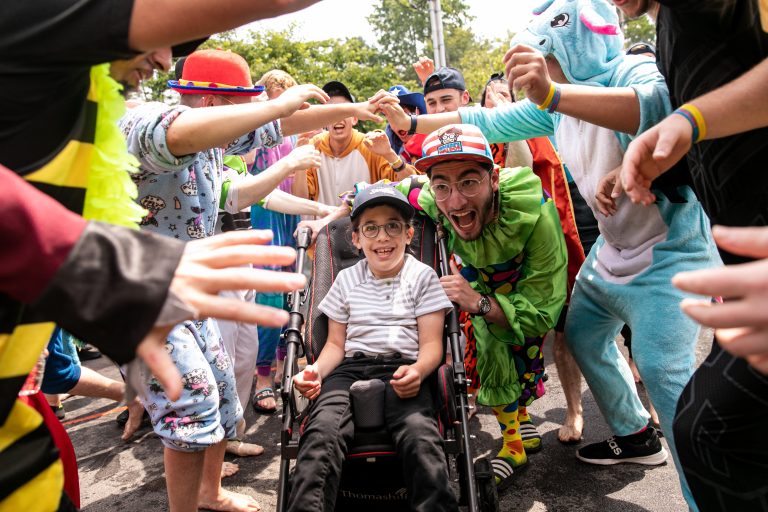Community service is not merely an act of altruism; it is a profound catalyst for personal transformation. The Bahá’í teachings elucidate this idea, positing that through the act of giving, individuals embark on an inward journey, reshaping their understanding of self and society. The metaphor of a seed, planted in the fertile soil of community service, illustrates how this simple act can yield a bountiful harvest, enriching both the giver and the receivers.
The Bahá’í faith emphasizes the interdependence of humanity, akin to a vast woven tapestry, where individual threads contribute to the overall beauty and strength of the fabric. This interconnectedness forms the foundation for social action, urging individuals to work towards the betterment of society. Engaging in community service is akin to reinforcing the bonds that bind these threads together: the more one gives to the community, the more radiant the tapestry becomes.
Giving, within this theological framework, transcends the act itself; it becomes an embodiment of selflessness and an expression of divine attributes. The Bahá’í writings suggest that true giving arises from a sincere desire to uplift others, prompting individuals to transcend their own limitations. Much like a wellspring that nurtures the surrounding environment, the act of service invigorates not only the communities served but also cultivates a deeper sense of purpose within the giver.
As one engages in acts of community service, the transformative nature of giving begins to unfold. The initial intention, often rooted in a desire to help, evolves into a journey of self-discovery. Exposure to diverse human experiences fosters empathy, the key that unlocks the door to mutual understanding. This process is akin to the metamorphosis of a caterpillar into a butterfly; the giver emerges with a newfound perspective, equipped with the empathy and compassion necessary to navigate the intricacies of human relationships.
Furthermore, the act of giving serves as a mirror, reflecting the innermost values and virtues of the giver. In the Bahá’í view, every individual possesses an innate capacity for kindness and generosity, akin to latent potential waiting to be realized. Engaging in community service allows one to discover these hidden facets of the self and to align personal aspirations with the greater good. It is a symbiotic relationship: as individuals nurture their communities, they cultivate their own spiritual and moral growth.
This reciprocal dynamic underscores another vital aspect of community service: the cultivation of unity. Unifying humanity is a cornerstone of Bahá’í teachings, and community service provides a tangible avenue to manifest this ideal. When individuals from various backgrounds come together to serve a common purpose, walls of division crumble, and a sense of solidarity emerges. In this collective endeavor, the giver begins to weave connections, fostering a rich tapestry of relationships built on trust and mutual respect.
Moreover, community service challenges the notion of scarcity that often pervades modern life. In our society, individuals may feel as though resources, be they emotional, financial, or temporal, are limited. However, the Bahá’í principle of selflessness espouses a different reality: that in giving, one invites abundance into their life. Just as a river, flowing generously towards the ocean, creates an ecosystem teeming with life, so too does generosity inspire a cycle of giving and receiving within communities. The more individuals contribute, the more they discover their capacity to create positive change.
Additionally, the unique appeal of community service lies in its ability to catalyze collaboration among diverse groups. The Bahá’í teachings espouse the importance of unity in diversity, celebrating the richness brought forth by different cultural perspectives and life experiences. When individuals invest their time and energy into community service, they create a fertile ground for interdisciplinary collaboration. This not only enriches the experience but also leads to innovative solutions to societal challenges. As disparate voices harmonize in pursuit of a common goal, the community emerges stronger, more resilient, and better equipped to navigate future challenges.
The impact of community service extends far beyond the immediate outcomes; it reverberates throughout the lives of both the giver and the receiver in profound and lasting ways. The giver, through acts of selfless service, may experience a deepened sense of identity and belonging. They may become catalysts for change, inciting others to also engage in actions that uplift the collective. Their journey embodies the idea that giving begets giving—that generosity inspires not just a ripple but a transformative wave throughout the community.
Ultimately, the essence of community service, as illuminated by Bahá’í teachings, evolves into a practice of devotion, a pathway towards spiritual enlightenment. Each act of giving is akin to painting a stroke on the canvas of humanity—an opportunity to contribute to a larger masterpiece. In recognizing the intrinsic connection between the giver and the community, one cultivates not just an external landscape of support and cooperation, but also a rich internal terrain brimming with the fruits of kindness, empathy, and love.
In conclusion, the transformative potential of community service encapsulates the core tenets of Bahá’í teachings. As individuals engage in giving, they embark on a journey that nurtures their soul, fosters unity among diverse communities, and illuminates the interconnected web of humanity. In the end, every act of service becomes a thread in the tapestry of existence—an opportunity to weave a brighter future for all.
